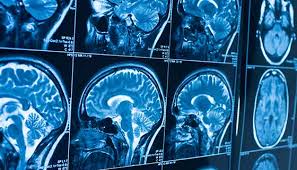03 Feb 2026
Rhinoplasty Revision Surgery in Mohali: Cost When Your First Nose Job Fails


22 Jun 2025
Call +91 80788 80788 to request an appointment.
The human brain is one of the most vital organs in the body, orchestrating numerous functions from movement to cognition. Brain tumors, which can be benign or malignant, represent a significant health concern, as they can impact a person's quality of life and overall health. According to the World Health Organization (WHO), brain tumors account for about 1.4% of all cancers, yet their implications are profound. At Livasa Hospitals, Mohali, we specialize in providing comprehensive brain care and treatment for various types of brain tumors, ensuring patients receive the highest levels of care tailored to their individual needs.
Given the complexity and critical nature of brain health, understanding the different types of brain tumors, their symptoms, potential causes, and treatment options is essential. This blog aims to inform and empower patients, families, and caregivers by highlighting crucial aspects of brain tumors while taking a localized perspective that emphasizes the availability of care in Punjab, particularly at Livasa Mohali.
Brain tumors can be classified in several ways based on their location, type of originating cell, and whether they are primary (originating in the brain) or secondary (metastatic). The most common types of brain tumors include:
Understanding these types of tumors is crucial in determining their potential severity and the treatment approach at Livasa Mohali, where we assess each patient on a case-by-case basis to decide on the most suitable intervention.
Brain tumors can manifest a wide array of symptoms depending on their size, type, and location. Patients may experience:
If you or a loved one are experiencing any of these symptoms, it is crucial to seek medical advice promptly. Livasa Hospitals provides thorough evaluations and diagnostic imaging to identify brain tumors quickly and accurately.
While the exact causes of brain tumors remain unclear, several risk factors have been identified that may contribute to their development, including:
While understanding the risk factors can help, it is crucial to remember that not everyone with these risk factors will develop brain tumors. At Livasa Mohali, we advocate for regular health check-ups, especially when one falls under the high-risk category, to facilitate early detection and tailored intervention.
Detecting brain tumors involves a combination of neurological examinations and imaging tests. The following diagnostic steps are typically taken:
Early and accurate diagnosis is vital for better outcomes. At Livasa Hospitals, Mohali, we utilize state-of-the-art imaging and diagnostic technologies to provide timely and precise results, enabling prompt treatment decisions.
Treatment for brain tumors varies based on the type, size, location, and the patient's overall health. Common treatment modalities include:
| Treatment Type | Indications | Recovery Time |
|---|---|---|
| Surgery | Removal of the tumor, especially if accessible and operable | Varies from days to weeks |
| Radiotherapy | Shrink tumors, especially inoperable ones | Ongoing treatment over several weeks |
| Chemotherapy | Medication to kill cancer cells | Varied, depending on the drug used |
| Targeted Therapy | Specific for tumor types based on genetic analysis | Varies; typically some months |
At Livasa Hospitals Mohali, our multidisciplinary team customizes treatment plans to align with individual patient needs and circumstances, ensuring that each step is taken with the utmost care and consideration.
Post-treatment care for brain tumor patients is critical for recovery and rehabilitation. Various aspects contribute to the aftercare process:
Our aftercare programs at Livasa Mohali include access to psychological support services and rehabilitation professionals committed to helping patients navigate their recovery journey smoothly.
Brain tumors present diverse challenges ranging from identification to treatment and rehabilitation. Therefore, having a dedicated healthcare support system is crucial. At Livasa Hospitals in Mohali, we offer comprehensive brain care in Punjab, providing specialized therapies and support to optimize patient outcomes.
By focusing on evidence-based practices combined with compassionate care, we aim to empower patients through every facet of their journey. Being informed and proactive can significantly influence outcomes, as early diagnosis and tailored treatment plans stand as key pillars of successful treatment.
If you suspect any brain tumor symptoms or need more information about brain tumor treatment in Punjab, book an appointment at Livasa Hospitals today or contact our specialists for expert advice.
Rhinoplasty Revision Surgery in Mohali: Cost When Your First Nose Job Fails
Plastic Surgery After Massive Weight Loss: Body Contouring Packages in Mohali
ENT + Cosmetic in Mohali: Septoplasty for Breathing with Cosmetic Rhinoplasty Offers
Livasa Healthcare Group Corporate Office,Phase-8, Industrial Area, Sector 73, Sahibzada Ajit Singh Nagar, Punjab 160071
| Mohali | +91-99888 23456 |
| Amritsar | +91-99887 49494 |
| Hoshiarpur | +91-99883 35353 |
| Nawanshahr | +91-75081 82337 |
| Khanna | +91-98888 05394 |